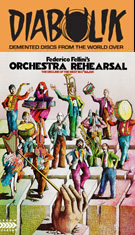

Color, 1978, 72 mins. 14 secs.
Directed by Federico Fellini
Arrow Video (Blu-ray & DVD) (US/UK RA/B/0 HD/NTSC/PAL) / WS (1.78:1) (16:9), Fox Lorber (DVD) (US R1 NTSC)


Color, 1978, 72 mins. 14 secs.
Directed by Federico Fellini
Arrow Video (Blu-ray & DVD) (US/UK RA/B/0 HD/NTSC/PAL) / WS (1.78:1) (16:9), Fox Lorber (DVD) (US R1 NTSC)
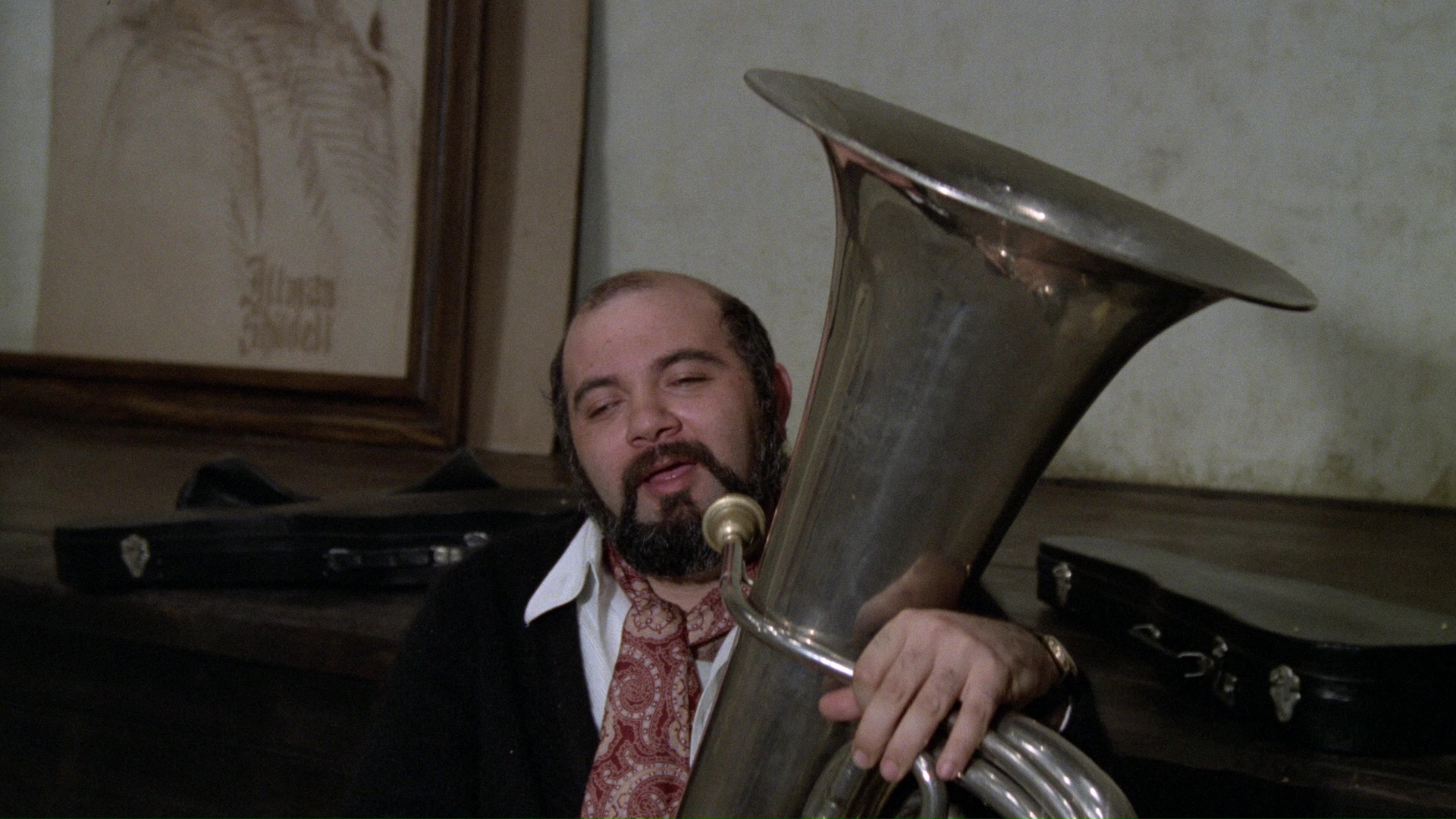
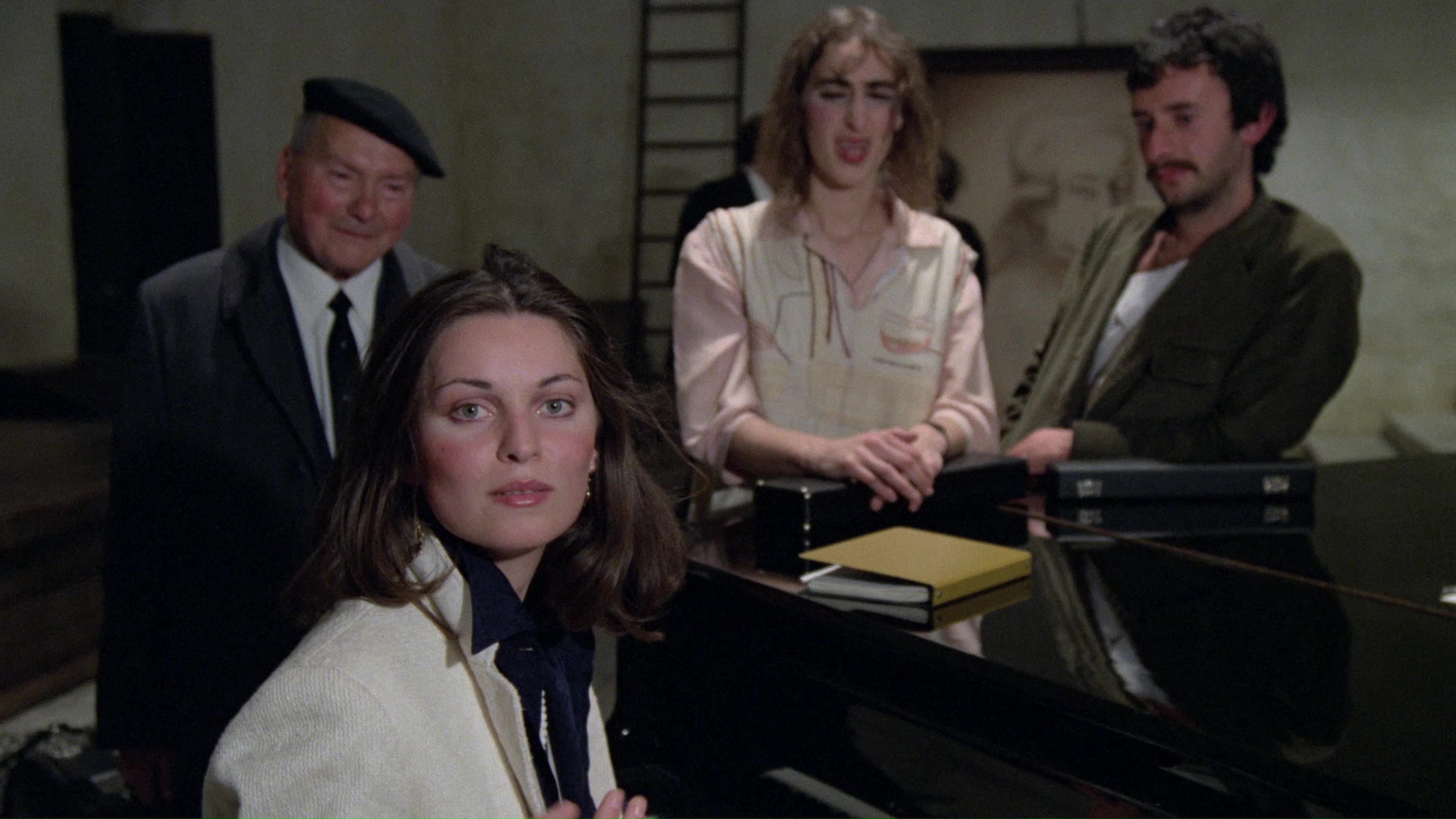 least seen and most challenging of the four theatrical feature films by Federico Fellini released in the 1970s, Orchestra Rehearsal finds the maestro at his most abstract. Gone is the voluptuous indulgence of his two prior tapestries of life, Amarcord and Roma; here the action is mainly confined to one building, an austere chapel converted into a music auditorium.
least seen and most challenging of the four theatrical feature films by Federico Fellini released in the 1970s, Orchestra Rehearsal finds the maestro at his most abstract. Gone is the voluptuous indulgence of his two prior tapestries of life, Amarcord and Roma; here the action is mainly confined to one building, an austere chapel converted into a music auditorium. 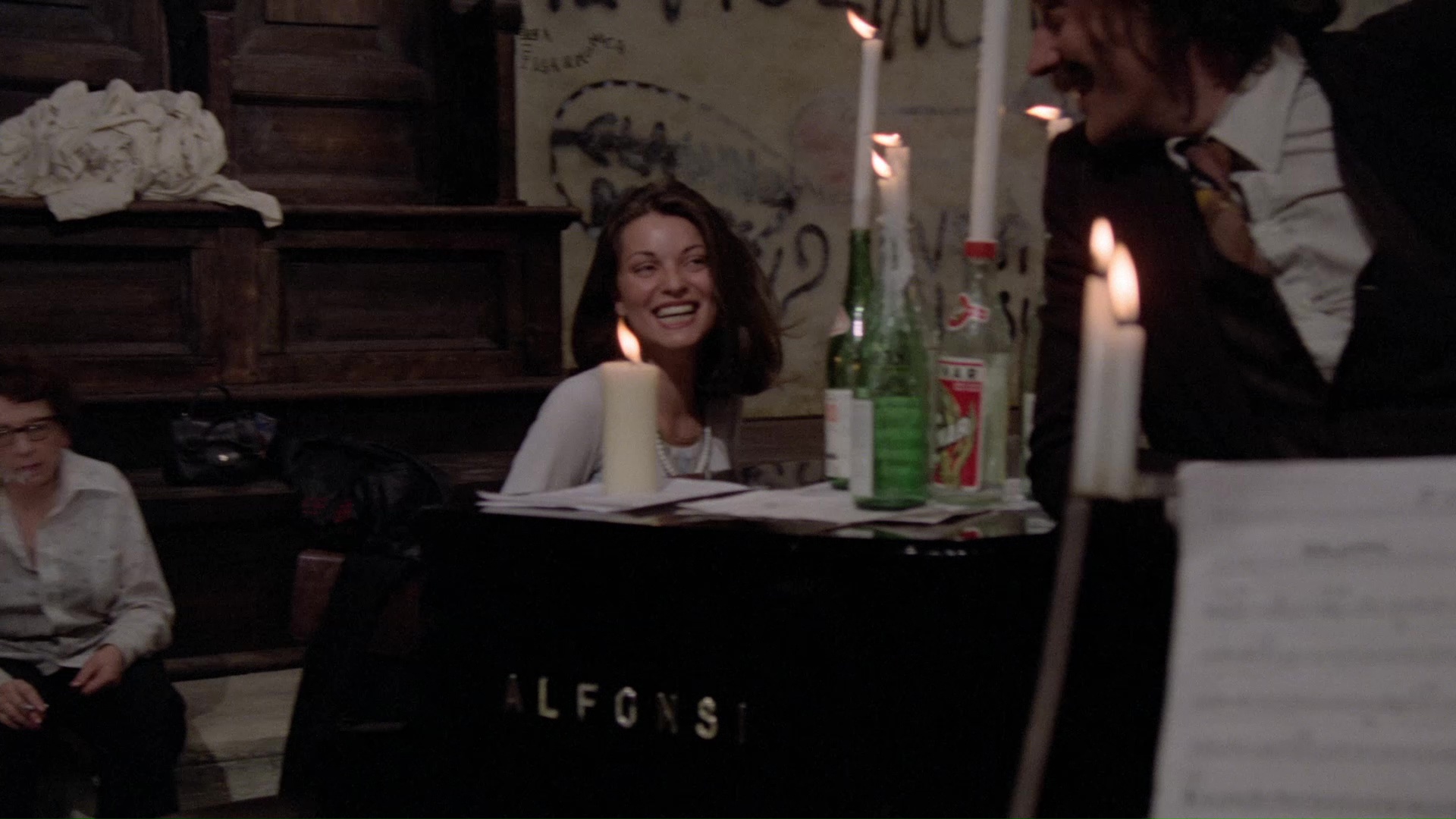 dynamics and more in the way self-interest can sabotage any sort of organization set up by human beings.
dynamics and more in the way self-interest can sabotage any sort of organization set up by human beings. 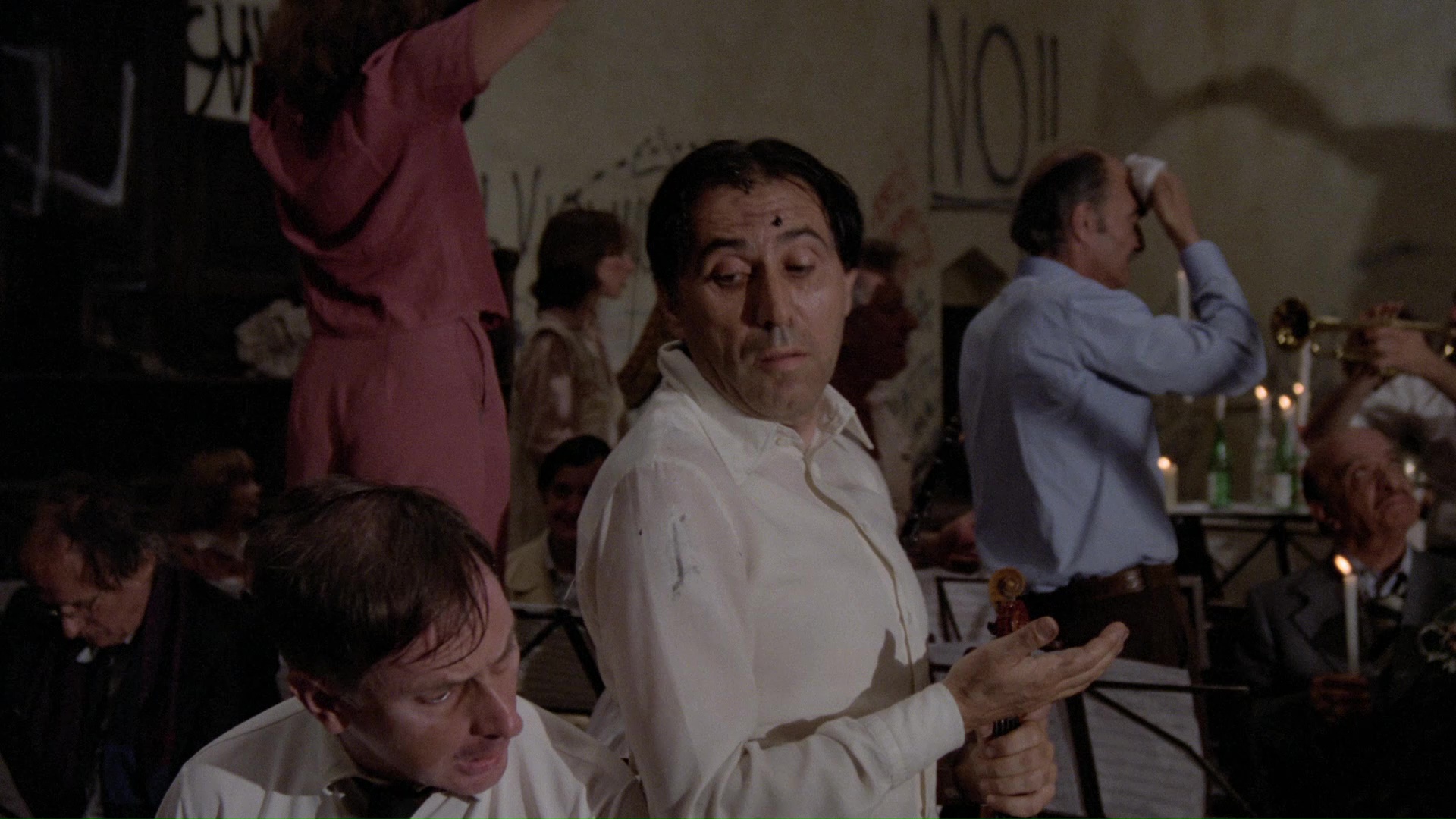 The presence of union reps early in the proceedings inside the oratory is an indication of how artistic expression often butts heads with the rules required to pull it off, something that becomes very clear during the memorable finale when visuals and music harmonize beautifully for a few minutes. This film is often cited as a factor in Fellini's perceived decline, with critics trying to compare it directly to Amarcord and its immediate predecessor, the financially disappointing but astonishing Casanova,
The presence of union reps early in the proceedings inside the oratory is an indication of how artistic expression often butts heads with the rules required to pull it off, something that becomes very clear during the memorable finale when visuals and music harmonize beautifully for a few minutes. This film is often cited as a factor in Fellini's perceived decline, with critics trying to compare it directly to Amarcord and its immediate predecessor, the financially disappointing but astonishing Casanova,
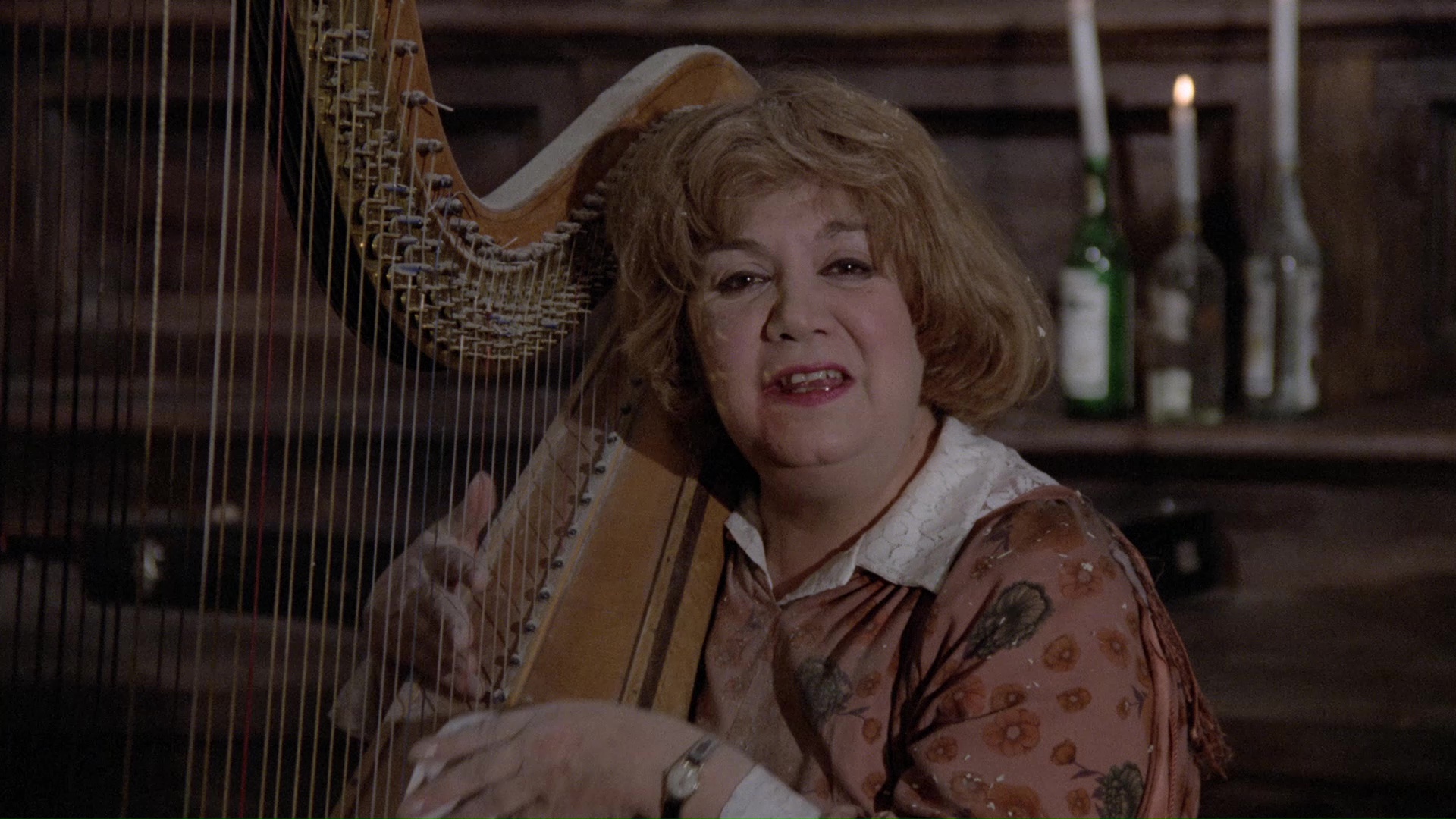 out of circulation in any format since its very underwhelming 1998 DVD release from Fox Lorber, Orchestra Rehearsal looks beautiful in its 2018 Blu-ray and DVD release from Arrow Video (in both the U.S. and U.K.) with a new 2K restoration that makes it just as pleasing as their
out of circulation in any format since its very underwhelming 1998 DVD release from Fox Lorber, Orchestra Rehearsal looks beautiful in its 2018 Blu-ray and DVD release from Arrow Video (in both the U.S. and U.K.) with a new 2K restoration that makes it just as pleasing as their 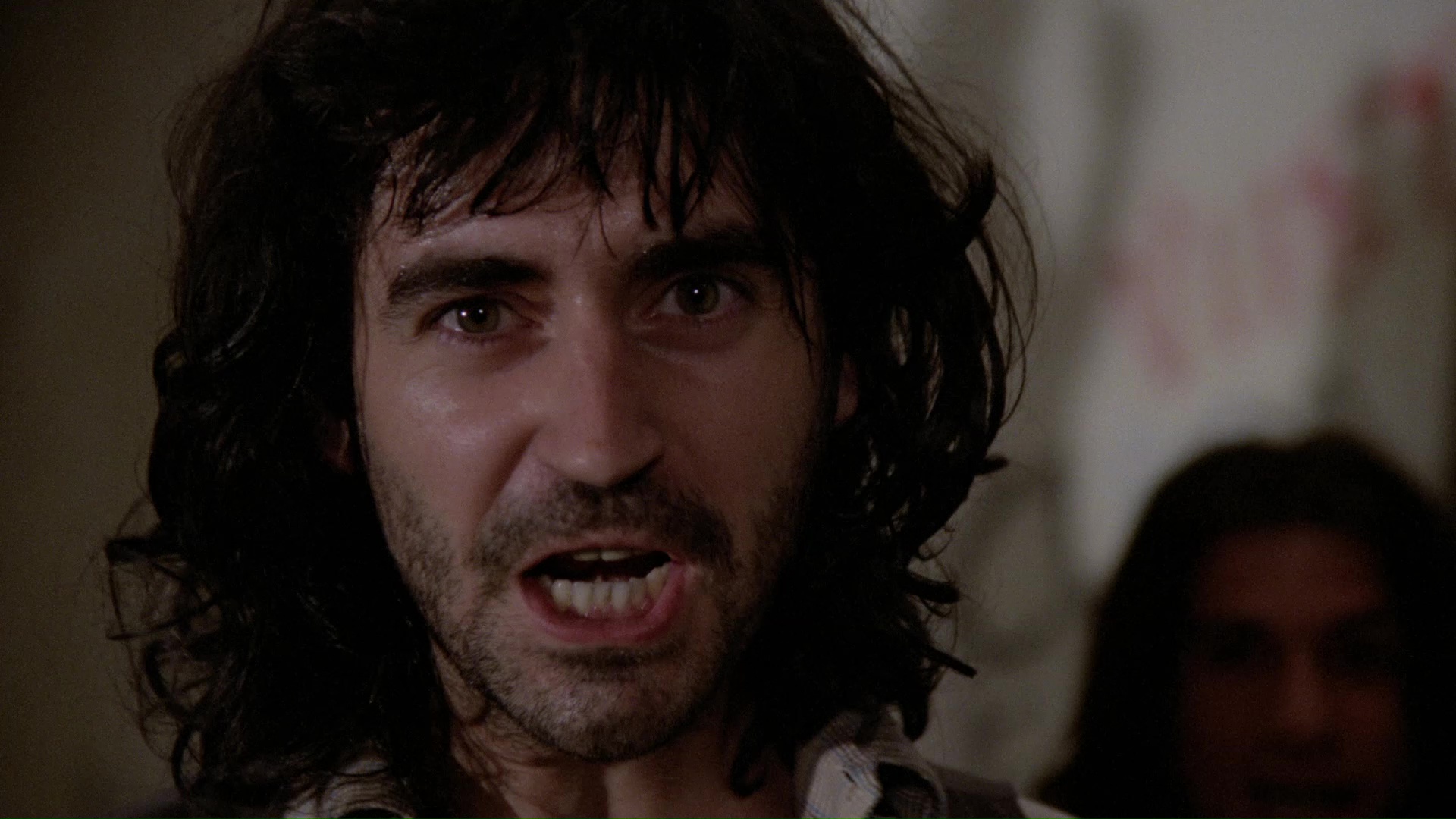 exception release of Fellini's The Voice of the Moon the prior year. Though partially financed by Italian television titan RAI, it was shown theatrically in both Europe and the U.S. and looks well composed here at 1.78:1; the preferred framing is anyone's guess here as it's shown anywhere between 1.85:1 and 1.33:1, but the presentation here doesn't seem to have any compositional issues. In typical Fellini fashion, the looped Italian track never comes close to matching anyone's lip movements but sounds great here with the LPCM mono track nicely handling the Rota score and sounds of instruments warming up. In the new "Richard Dyer on Nino Rota and Orchestra Rehearsal" (20m43s), the film scholar takes stock of one of the most important director-composer relationships in film history and examines how their rapport over the course of numerous films produced a distinctive creative flavor unlike any other. The visual essay "Orchestrating Discord" (23m10s) by Fellini biographer John Baxter is a swift and amusing bit of contextual commentary about the film, kicking off with a relevant clip from Pasolini's brilliant segment of RoGoPaG and painting a portrait of Fellini's playful and sometimes perverse artistic approach while touching on everything from Bob Guccione to the difficulty of finding real musicians who could act. Finally a 30-image collection of "Felliniana" presents a collection of ephemera ranging from posters to soundtracks to press books. In addition to the usual reversible sleeve options, the release also comes (in its first pressing only) with a liner notes booklet featuring a new essay by Adrian Martin.
exception release of Fellini's The Voice of the Moon the prior year. Though partially financed by Italian television titan RAI, it was shown theatrically in both Europe and the U.S. and looks well composed here at 1.78:1; the preferred framing is anyone's guess here as it's shown anywhere between 1.85:1 and 1.33:1, but the presentation here doesn't seem to have any compositional issues. In typical Fellini fashion, the looped Italian track never comes close to matching anyone's lip movements but sounds great here with the LPCM mono track nicely handling the Rota score and sounds of instruments warming up. In the new "Richard Dyer on Nino Rota and Orchestra Rehearsal" (20m43s), the film scholar takes stock of one of the most important director-composer relationships in film history and examines how their rapport over the course of numerous films produced a distinctive creative flavor unlike any other. The visual essay "Orchestrating Discord" (23m10s) by Fellini biographer John Baxter is a swift and amusing bit of contextual commentary about the film, kicking off with a relevant clip from Pasolini's brilliant segment of RoGoPaG and painting a portrait of Fellini's playful and sometimes perverse artistic approach while touching on everything from Bob Guccione to the difficulty of finding real musicians who could act. Finally a 30-image collection of "Felliniana" presents a collection of ephemera ranging from posters to soundtracks to press books. In addition to the usual reversible sleeve options, the release also comes (in its first pressing only) with a liner notes booklet featuring a new essay by Adrian Martin.Reviewed on February 21, 2018.
![]()